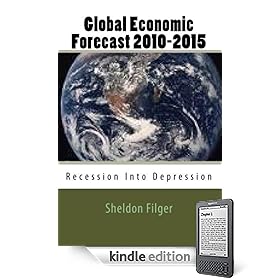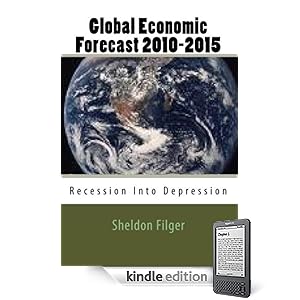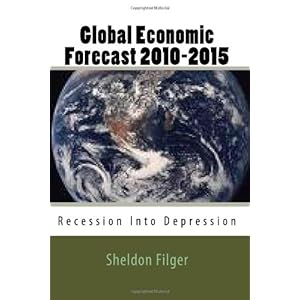NYU Economics Professor Nouriel Roubini believes that the risk of a double dip recession is growing in the United States. He assesses the probability of a double dip at 40%, the other scenario being subpar economic growth (under one percent), which feels like a recession in terms of high unemployment, growing public deficits, declining home values and increased losses among banks and financial institutions.
“You don’t need negative economic growth to feel like a recession when growth is well below trend growth,” Roubini said in a recent Financial Times interview. Even if a double dip is technically avoided in the last quarter of 2010, Nouriel Roubini’s forecast for 2011 is dire. He sees the risk of a double dip recession increasing, along with widening credit spreads and interbank lending rates. Compounding his gloomy projection, Roubini sees little left for policymakers to grapple with, either on the monetary or fiscal side. In particular, he sees another flurry of quantitative easing by the U.S. Federal Reserve as being “impotent.”
The downbeat perspective of Roubini on the U.S. economy extends to Europe, where he believes the recent impressive growth figures in Germany are merely temporary. Furthermore, he points out, Germany is the best performing economy in the Eurozone, where the remaining countries are facing disaster. Half of the Eurozone is already experiencing a double dip recession. In addition, Japan is courting a double dip, and even strong emerging economies such as China are showing signs of an economic slowdown.
The economist known as “Dr. Doom” is actually trying to view economic trends in a realistic manner. If his interpretation of emerging trends strikes a chord of doom and gloom, one needs to look critically at those trends rather than marginalize the messenger. It should be recalled that when Nouriel Roubini issued his warning about the coming collapse of the financial order as we once knew it, based on a house of cards and subprime mortgages, he was harshly ridiculed by many mainstream economists. All the more reason to listen to what he has to say about the current state of the global economy.
Overall, I have not seen Professor Roubini so gloomy on the state of the global economy since his prescient warnings of financial Armageddon approaching in the months leading up to the implosion of the investment banks in the summer and fall of 2008.











